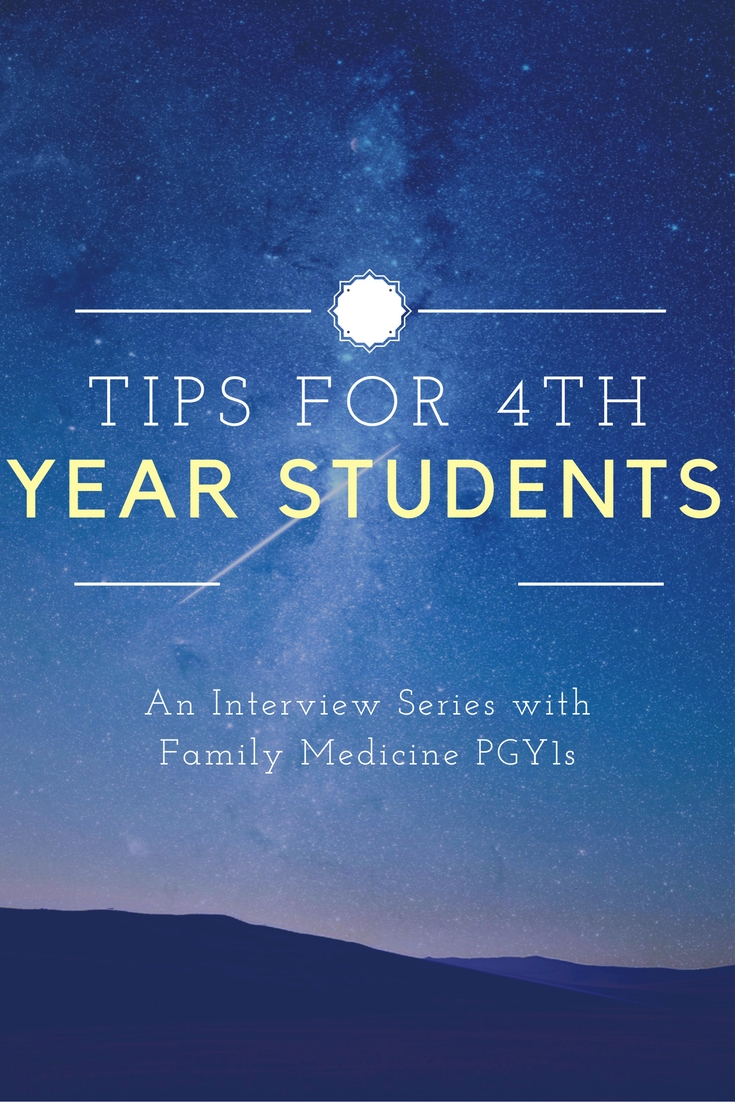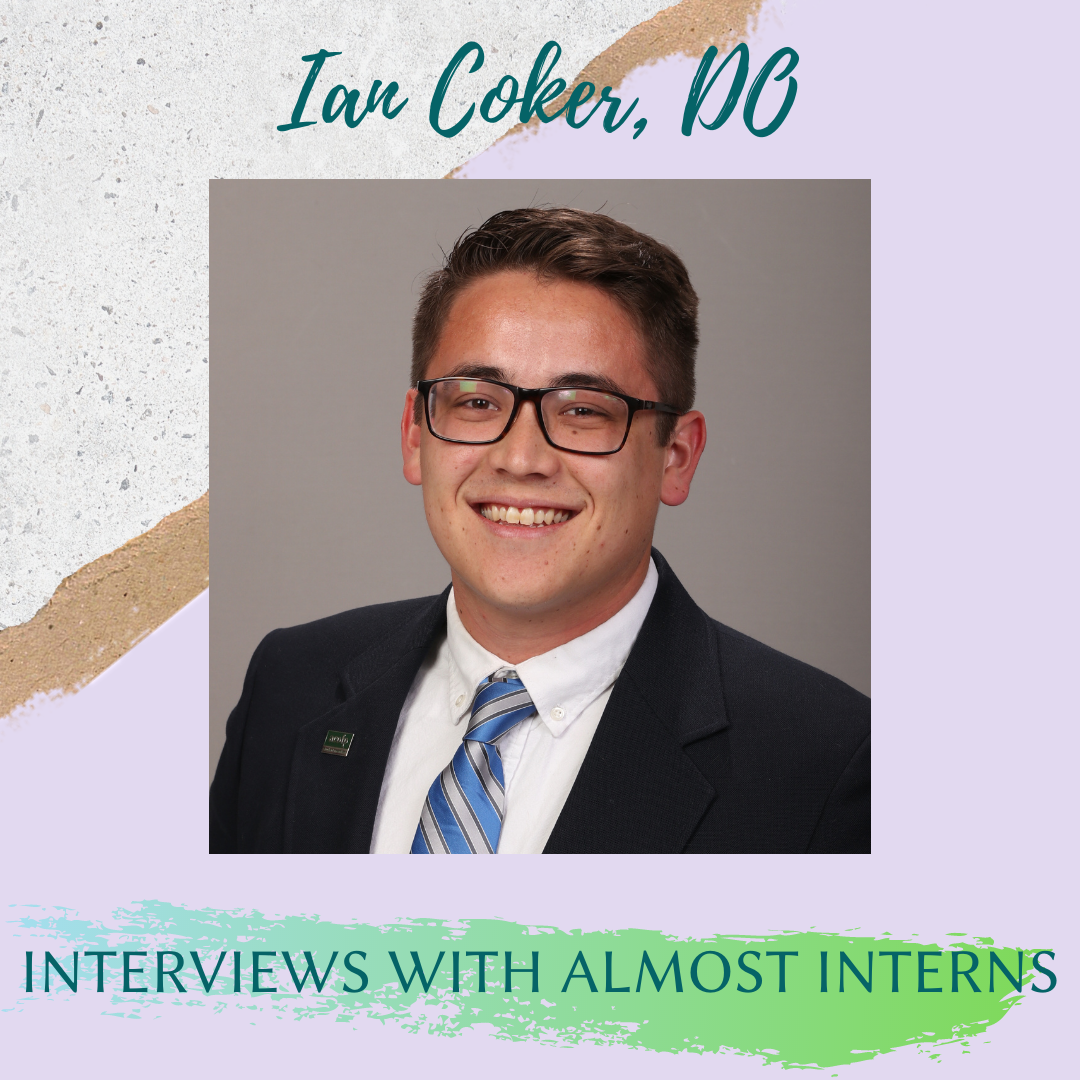Interview with a MS4: Part One with Jordan Hoese

Today we start part one of a three part interview with Jordan Hoese, MD, MPH, a recently graduated fourth year medical student. She Matched into Family Medicine and let us ask her a barrage of questions about specialty conflict, hidden curriculum, Choosing Family Medicine and more.
Becoming a family medicine doctor felt to me less like a choice and more like a moral imperative.
Interviewing Jordan Hoese, MD, MPH
When did you start leaning toward Family medicine?
Looking back at my medical school personal statement it reads like a family medicine personal statement! But if you had asked me what I was interested in back then, I would have told you neurology or med-peds. I had internalized a lot of toxic and prevalent myths about primary care, and though I didn’t actually know a lot about Family Medicine, I was pretty adamantly against it as a career choice when I started medical school.
However, I still knew I wanted longitudinal patient relationships, was passionate about public health, community development, and health disparities, and my clinical interests were really broad. So when the opportunity to enroll in a pilot elective program (the Longitudinal Orientation and Outpatient Clerkship) during my first year of medical school, I figured it was a good fit for my interests and signed up. It was a pre-clinical elective experience designed to expose medical students to primary care, by assigning them to a primary care preceptor and clinic to work in weekly for a year. I was among the first group of students to enroll in the pilot, and due to preceptor availability I was assigned to a Family Medicine clinic, and not a med-peds clinic as I had requested.
I had an amazing time in clinic on that rotation, due in large part to my preceptor and his approach to medicine. Though it was a suburban clinic, he had trained at a rural-focused program and really brought a full-spectrum perspective to his practice, managing complex patients and procedures on his own, which fascinated me. Beyond this, I was impressed by his grasp of public health, social determinants, and population medicine; and his ability to integrate all of it into his clinical practice and presence in the community.
Despite this I remained adamant to myself and to my preceptor that Family Medicine was not for me. It wasn’t until I took a break from shadowing in clinic over the summer to complete my MPH practicum that a little voice in my head suggested that FM might be exactly what I was looking for. When I was away, I realized how much I missed my time in clinic. Although I’m a dedicated and hardworking person, I had never actually missed school while on summer break before. I knew this had to mean something.
Even then I didn’t admit it to myself! But in the year and a half between that elective and my eventual specialty decision (in what was perhaps the most expertly, longitudinally, and subtly delivered instance of motivational interviewing ever) my preceptor (and now mentor and friend) slowly got me to buy in to the idea of Family Medicine as an option, and even think it was my idea!
What “specialty conflicts” arose for you on the path to this decision? What made you realize Family Medicine was a better fit for you?
As I mentioned above, I was super conflicted at the beginning! By the time I got to the middle/end of my third year I had started telling people I was interested in Family Medicine, but I still wasn’t completely sold on it. Pediatrics was my last rotation, and I had a strong suspicion that I was going to fall in love with that instead, so I was holding out.
I wasn’t wrong! I had a real identity crisis on pediatrics, and ended up sharing my dilemma with every pediatric attending or resident I encountered. It seemed that the choice between family medicine and pediatrics was a common one, and I realized quickly that the two specialties had a lot in common, both clinically and personality-wise.
I loved pediatrics, and could easily have given up treating adults for a career. Plus, if I was going to specialize, I would have wanted to be a pediatric endocrinologist, not an adult one. But I felt uncomfortable giving up any patient population, and I would have felt uncomfortable firing patients simply because they aged out of my practice. Everyone needs health care, and I didn’t want to turn anyone away.
This perspective was cemented when my endocrine team was called about a teenage patient presenting in DKA (due to new-onset Type 1 Diabetes), who was also in active preterm labor at 23 weeks. Pediatrics, Internal Medicine, and OB-GYN each refused the transfer because that patient didn’t fall into their demographic, and had medical and social problems that fell outside of their comfort zones. Throughout medical school I had found myself continually frustrated when patient’s problems were viewed separately, decontextualized from their other conditions and general health status as determined by their health behaviors, knowledge, attitudes, and access.
But after her story, knowing she left the hospital with a new diagnosis of diabetes and without her stillborn infant, becoming a family medicine doctor felt to me less like a choice and more like a moral imperative. She needed a constant presence that could help guide her through these life-altering events. She needed better health systems that would have kept her out of this situation in the first place. She needed a physician who could care for her as a child, a diabetic, a mother who lost a baby, and her mental health, not in pieces, but all at once. She needed family medicine!
And then when it came to my interest in pediatric subspecialities, I asked around and found a couple instances of FM doctors practicing pediatric pulmonology, and running cystic fibrosis clinics for complex care kids. That this kind of practice had been done before was all I needed – I was all in on family medicine!
TL;DR: Yes, but I realized I wanted to be able to take care of kids when they got pregnant or became young adults, too. When I realized that FM doctors can literally do anything, that you can create a practice based on your clinical interests, I was sold.
Have you experienced “specialty disrespect” when attendings discover your intention to apply FM?
Honestly, it’s been relatively rare in my 2.5 years of clinical rotations, which was surprising. When I was on my ambulatory care rotation, I rotated with a lot of general Internists who would try to convince me that “everything interesting happens in IM” (which I could not disagree with more) and that “you’re selling yourself short if you don’t choose IM”. And when I was on my PICU rotation I was met with “hhmmmphhff”s and got some not-so-nice written feedback regarding my specialty choice; however, since they graded me well, I’m going to choose to interpret this as meaning that they liked me and wished I was going into intensive care instead. But these were the exception, not the rule.
A lot of the pushback came from people involved in the medical school itself rather than actual attendings. The school has worked hard to get rid of explicit bias when it comes to family medicine, and it thinks it’s done enough, but it’s clear the implicit bias and institutional barriers are still very much present.
I actually loved telling attendings that I was going into (rural) Family Medicine, because usually they lit up and would say something like “Oh, then you’ll need to know this!” or “Oh so this will actually be relevant to you”, because everything is relevant to FM. Contrast this to my peers who were going into more narrow fields, like psychiatry, surgery, or even OB/GYN. Whenever they were rotating off their future specialty, attendings would assume that these students didn’t care about the information, and wouldn’t use it in the future.
I felt like attendings were more engaged with me, and I with them, because I genuinely needed to know things about their specialty practice.
Thanks for Reading…
More to come next week, when we take a deeper dive into Dr. Hoese’s experiences as a leader of her FMIG and discuss medical school’s “hidden curriculum.”
Stay awesome, eat something healthy and get some sleep…




